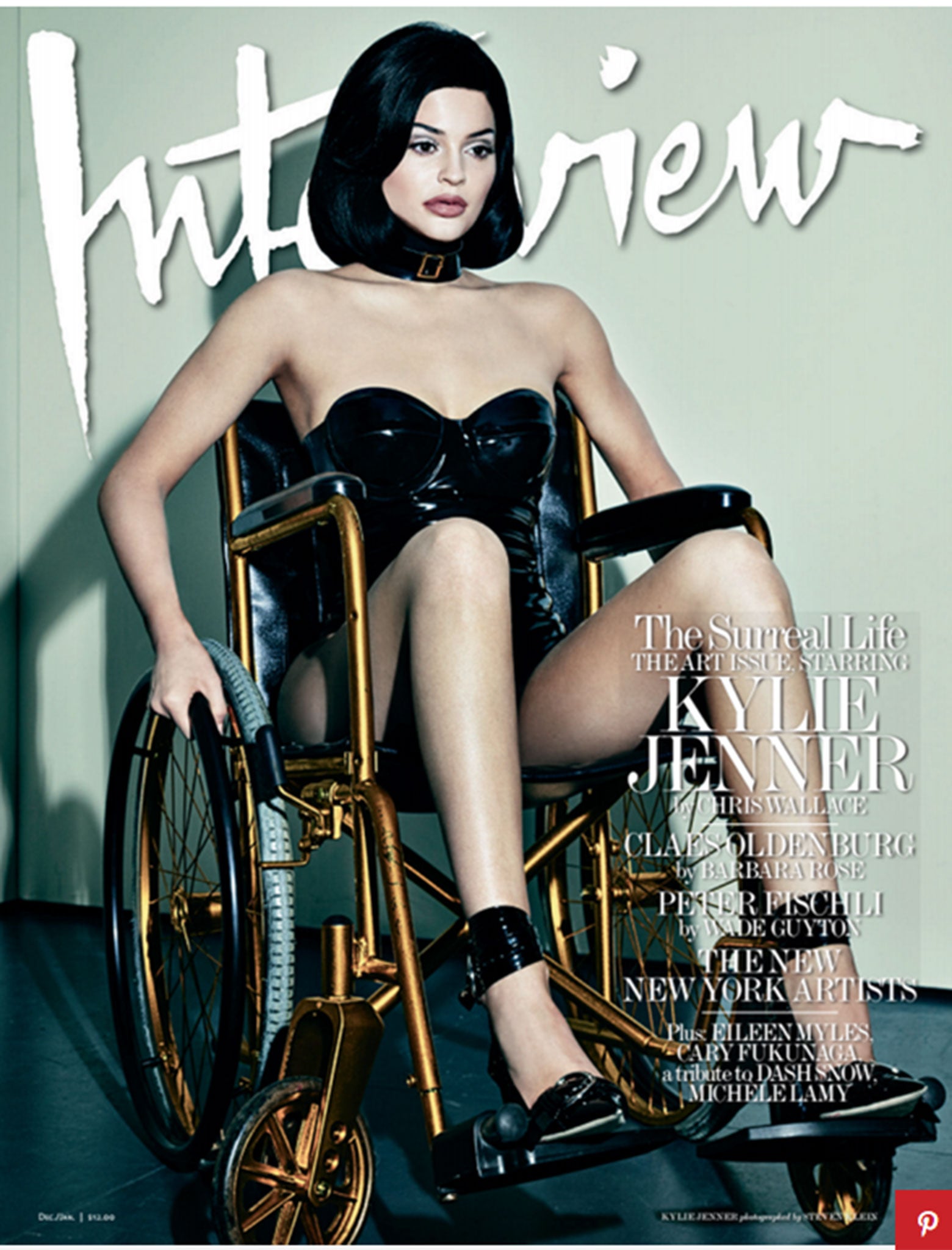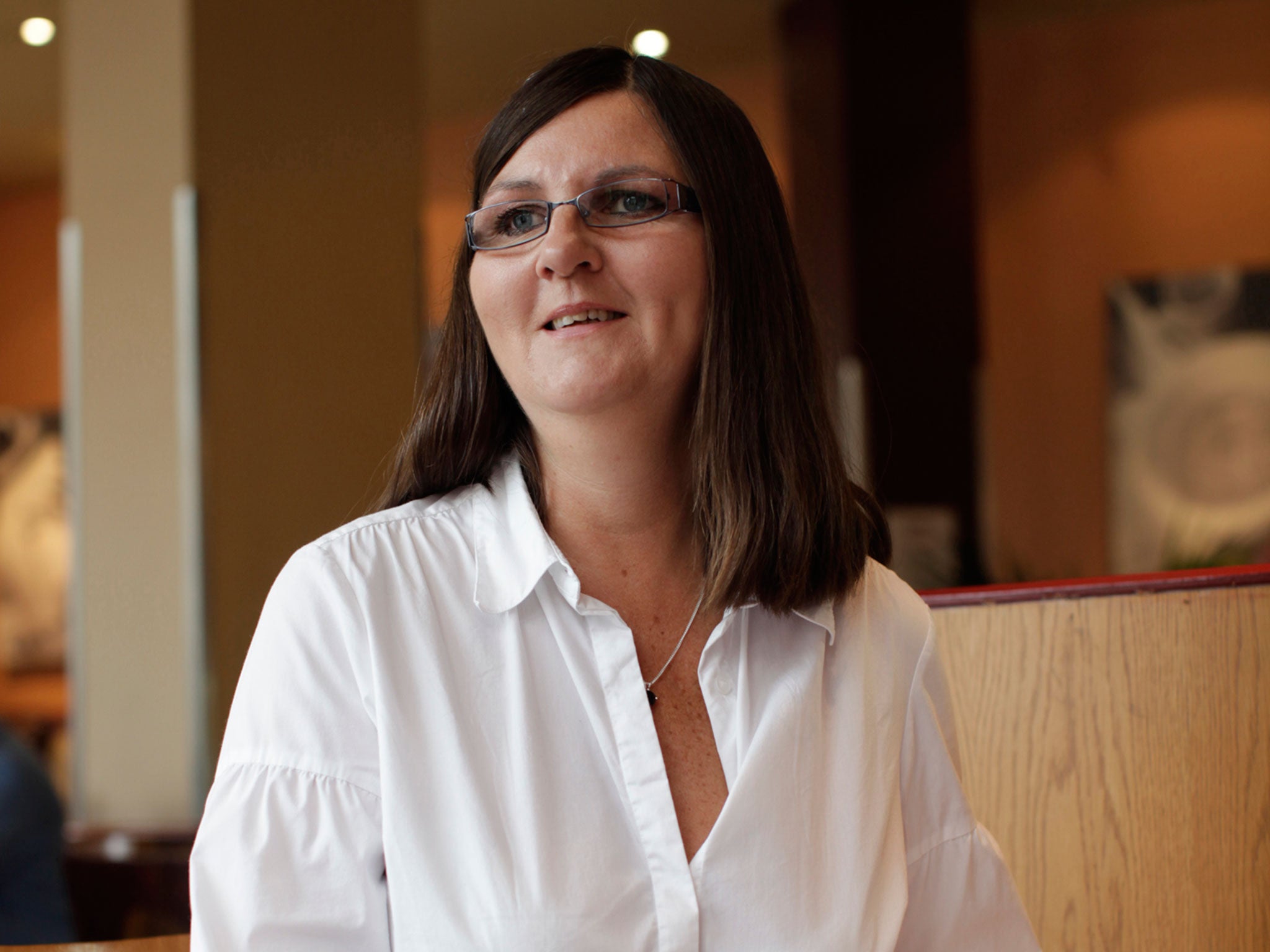After Kylie Jenner's wheelchair photo, people with disabilities reveal the things they wish you'd stop doing
"It's not OK to assume I don't have sexual needs, or that my wheelchair is a limitation"

Kylie Jenner has been branded an ableist after she was pictured using a wheelchair as a prop in a fashion magazine shoot.
Captured by photographer Steven Klein for Interview Magazine, the image depicts the reality TV personality in a golden wheelchair as she stares in the distance.
The image was released just days before the UN's International Day for Persons with Disabilities (IDD), which is aimed at raising awareness of the difficulties presented by a person's health conditions as well as the way in which society is focused around the able-bodied.
Over a billion people, about 15 per cent of the world's population, have some form of disability, according to the World Health Organisation.

Kayleigh Millar, a 19-year-old student at the University of Chichester and an ambassador for disabled children's charity Whizz Kidz, said the photo was derogatory to her and other wheelchair users.
"Kylie Jenner used the wheelchair as a metaphor for the limitations she has faced in her career, and that word limitation affects society’s view of disabled people.
"So now when they think of a wheelchair they’ll think of limitations."
To mark IDD, here are six things that - like Ms Jenner's photoshoot - those without disabilities think are acceptable but aren't.
'Don't assume you can know why I use a wheelchair'
"I find a lot of people feel they have the right to know what’s wrong with me before they know me," explains Ms Millar.

"And then when you don’t tell them they get offended. It shows that my disability is viewed as more interesting as my personality.
"That happens pretty much most days. I get at least a comment a day."
'Don't make people with disabilities feel uncomfortable at work'
"Disabled employees need to feel comfortable that their boss will see their talent first and foremost and not the support they need," says Clare Pelham, the Chief Executive of the Leonard Cheshire Disability charity.
"We know from our research that when people are open about themselves, and the support they need at work, that they are happier, more creative and more productive.”
'Don't describe my wheelchair as a limitation'
"It’s not ok when people define my wheelchair a limitation and describe it as something that confines me," explains Ms Millar.
"Like when they call me 'wheelchair bound', because my wheelchair is my freedom, it's not a limitation at all. In fact it enables me to do everything I can."
'Don't assume I won't travel because I use a wheelchair'
"Disabled people are neglected when it comes to motivation to do these sorts of things," says Ms Millar.
"I was never told I could travel the world, ever, after my accident.
"Whereas since I’ve had the new-found confidence I’ve been all over the place, including America, France."
"I was like 'if I want to do it I will find a way'. But still there’s days where I want to give up because of the way society is structured because someone will make horrible comment, or a comment that may mean well, but actually kind of knocks me.
"It makes me feel like don’t want to travel anymore."
'Don't use the 'r word'
"As somebody with a learning disability, I know that the words people choose to use can be really hurtful," says Lorainne Bellamy, spokesperson at learning disability charity Mencap.

"Some people don’t stop to think about using terms that can offensive to disabled people such as the 'r word', though it makes me feel different and not respected.
I've heard too many stories from my friends and colleagues who have a learning disability about people using highly offensive words to describe them. This is bullying as language like this makes people feel worthless.
'Don't think I don't have sexual needs because I have a disability'
"As a disabled person you have the same rights as anyone else to enjoy sex and have sensual experiences. These rights don’t change if you live in a care home," says Robert Hambrook, the manager of Leonard Cheshire Disability care home in Farnham, Surrey.
'It's not OK to think I'm not worthy of a romantic relationship'
"I quite often get told 'you’re really often pretty for someone in a wheelchair'. Does that mean I’m not pretty in other standards?" says Ms Millar.
"I tend to be stripped of gender. People tend to not see a woman [using a wheelchair] as an acceptable woman for a relationship or a man [who uses a wheelchair] as a competent man for a relationship. I want to be seen as a worthy member of a gender and equal to my peers in terms of relationships and romantic partners.
"With women’s clothing, there’s a certain expectation that I can’t dress pretty and there’s no sexual appeal if you wear a dress. You’re expected to be a certain way and you can’t be anything else."
'It's not OK to assume I'm brave'
"People tell me I’m brave all the time – when I’m shopping, heading to work or enjoying a drink with friends," says Rosemary Frazer, campaigns manager at disability charity Scope.

"Someone even told my partner that he was brave for taking me out. Our research shows that 62 per cent of disabled people say they are treated differently because of their impairment.
"This includes being told ‘you’re brave’, being asked ‘what’s wrong with you?’ being patronised and treated like a child.
"Not many people come into contact with disabled people in everyday life. So when they do, they panic, make awkward gaffes, or worse, avoid situations for fear of doing the wrong thing.
"Let’s be brave, get over our awkwardness and focus on the person, not their disability."
Join our commenting forum
Join thought-provoking conversations, follow other Independent readers and see their replies
Comments